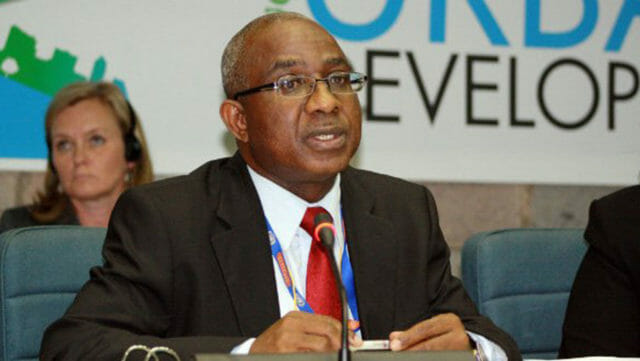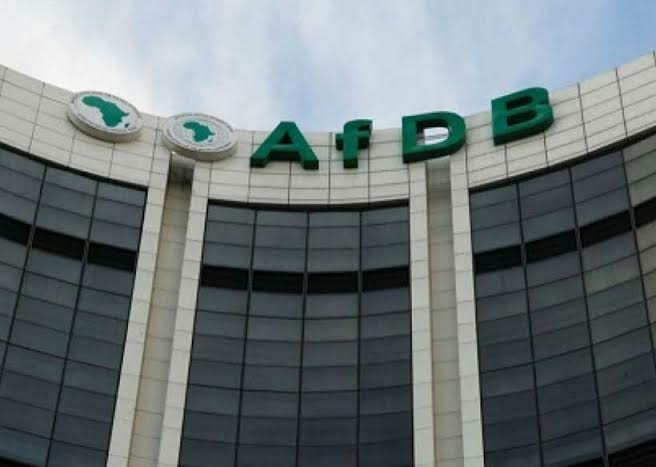According to the African Development Bank (AfDB), Nigeria’s newly established Agro-Industrial Processing Zones have the potential to alleviate the country’s poverty, hunger, and foreign exchange problems.
Prof. Banji Oyelaran-Oyeyinka, Special Adviser on Industrialisation to the President of the AfDB, told the News Agency of Nigeria (NAN) that if properly harnessed, the project’s impact will save millions of Nigerians who were expected to suffer from severe hunger and poverty.
The Special Agro-Industrial Processing Zones programme, a 538 million dollar initiative, is expected to bring economic infrastructure to rural areas with high agricultural potential, according to NAN.
The zones, which will cover 19% of Nigeria’s land area, are expected to attract private agro-industrialist and entrepreneur investment and benefit over 50 million Nigerians spread across six geopolitical zones.
The AfDB, Africa Growing Together Fund, and the Islamic Development Bank, as well as federal and state governments, contributed $538 million.
Oyelaran-Oyeyinka also stated that the project has the potential to reduce food imports into Nigeria while also encouraging the country to increase its own food exports.

“It will be a great achievement if all we do in the next couple of years is ensure that Nigeria no longer imports food, but we also want to export.”
“A country’s growth sustainability is determined by how much it is able to sell to others in addition to importing from others.”
“When you keep importing and discover that the urban population is growing, people’s tastes are changing, and people are demanding more sophisticated goods, but there is no foreign exchange.”
“So we believe that this will also solve the FOREX problem; we should broaden the basket of our foreign currency income rather than just managing demand, because what we’ve been doing in this country is managing demand, trying to say, who wants this, you give 10% to this one, 100% to this one, and all of that.”
“We want to be able to convert cassava to industrial starch, cassava to high quality flour, cocoa to cocoa powder and chocolate, and remember, all of that value chain employs people.”
“This is the difference between those who become wealthy and those who remain impoverished,” he explained.
He demonstrated agriculture’s potential by comparing Nigeria’s total oil exports in 2019 to Vietnam’s nearly 40 billion dollar accruals from exports of black pepper, cashew, and three other commodities in the same year.
As a result, he stated that the AfDB’s new initiative in Nigeria was headed in the same direction as the Vietnam example.
“So this is where we’re going, and I believe that with Nigeria’s entrepreneurial speed, the hardworking people, if we give them the chance, they’ll do it, and we’ll do it.”
“As a result, we believe that this is a watershed moment for our country.”
“COVID-19 has demonstrated that you cannot outsource your happiness, security, food, and health to other people; doing so is foolishness.”
“We are begging for this, begging for that, begging for food during COVID, begging for vaccine, when we have all of our God-given assets right here in Nigeria,” he explained.
He did, however, clarify that these effects would be felt more in the next 24 months and beyond because the initiative would require time for construction and development.
He stated that it will take time to build roads, irrigation systems, water, sanitation, and power systems, but he emphasized that these projects will also create jobs.
He added that the project will also include the construction of drying and processing facilities to reduce post-harvest losses, as well as process factories to encourage farmers to produce as much as they can.
“Once all of these are built, we are confident, and our estimate is that it will affect approximately 50 million people, including both direct and indirect employment.”
“So it’s an evolutionary process; how it plays out depends on how quickly we can do it, and this is where we really need our people to do these things efficiently and in a sustainable way.”
According to NAN, the first phase of the project will be implemented in eight states across six geopolitical zones, focusing on specific agro products chosen by the states.
Cross River State produces cocoa, rice, and cassava; the Federal Capital Territory produces beef and dairy livestock; Imo State produces beef and dairy livestock; Kaduna State produces tomato, maize, and ginger; Kano State produces rice, tomato, groundnuts, and sesame oil; Kwara State produces livestock; Ogun State produces cassava, rice, poultry, and fisheries; and Oyo State produces cassava, soybean, and rice.

















Discussion about this post